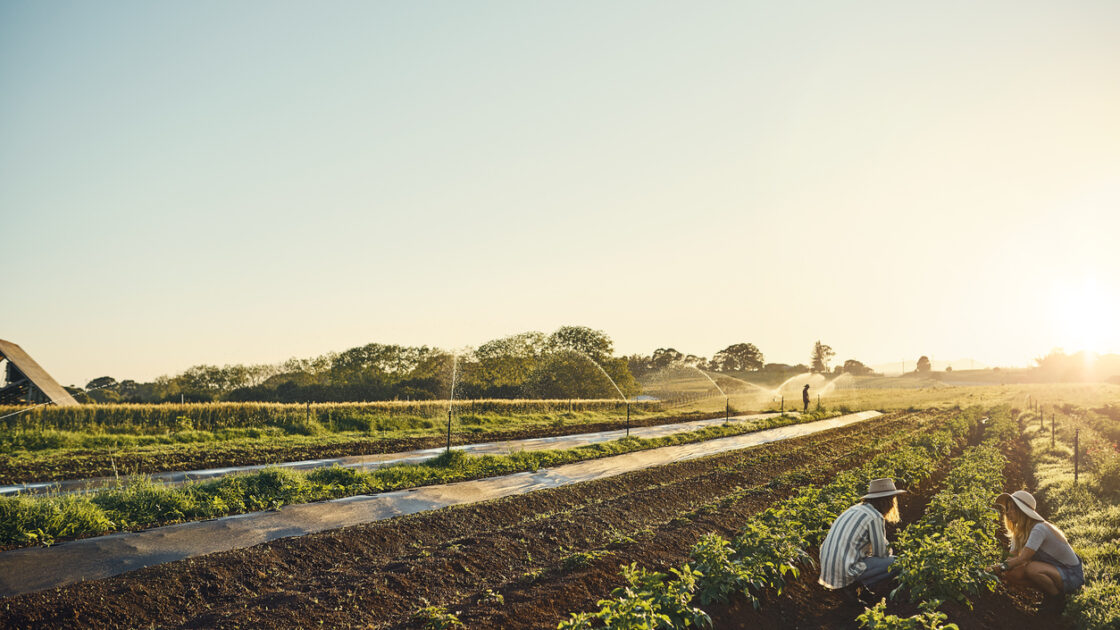Organic Agriculture May Reduce Greenhouse Gas Emissions, New Study Shows

A new study has shown that converting land from conventional to organic agriculture could reduce greenhouse gas emissions.
The study, published in the journal Nature Communications, found that these beneficial environmental effects would be further compounded as people continue to transition to a plant-based diet. Amongst other benefits, growing legumes would replenish nitrogen in the soil, according to the researchers.
Additional research published last week in Scientific Reports confirms these findings, showing that the use of older agricultural methods in place of newer, more destructive methods like tilling can transform soil into a beneficial carbon sink. These methods of rebuilding soil health, encouraged by the organic label, would contribute to the reduction of greenhouse gas emissions and help reduce the effects of climate change.
These new findings contradict research published in June in Environmental Research Letters, which found that organic and conventional agriculture “did not differ significantly in their greenhouse gas emissions,” results that were even surprising to study author Michael Clark, a PhD student at the University of Minnesota’s department of natural resources science and management.
“There’s a …[perception] that organic agriculture is a lot more sustainable than conventional agriculture is, so I guess I was kind of predisposed to believe that too until I looked at the data,” Clark told CBC.
Clark’s research found that organic agriculture used significantly more land than conventional – between 25 and 110 percent – but only 15 percent less energy.
Clark’s research did, however, agree with the findings of the latest study that plant-based diets could make a huge difference in the reduction of carbon emissions linked to agriculture. In an earlier study based on the same data, Clark had found that global emissions from food production will likely increase by 80 percent by 2050 if current dietary trends continue, whereas if people worldwide switched to a vegetarian diet, they would decrease by 55 percent.
“Organic farming does require more land than conventional methods,” Les Firbank, professor of sustainable agriculture at Leeds University, told the Guardian in reaction to the new research in Nature Communications. “But if we manage the demand for food by reducing waste and reducing the amount of crops grown as animal feed, organic farming can feed the world.”
Related on Organic Authority
Organic Agriculture Can ‘Feed the World’ Despite Lower Yields, New Research Finds
Organic Agriculture Boosts Economies and Reduces Poverty, New Report Shows
UN Prioritizes Sustainable Agriculture to End Hunger

